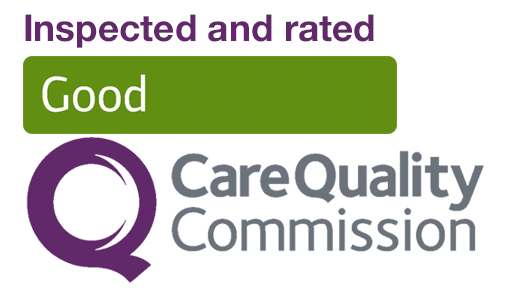It is especially important to keep your asthma under control in pregnancy. Asthma affects 4 to 12% of women during their childbearing years, according to the study. The majority of asthma treatment options are safe for your unborn child, and if you can breathe easily, your baby will develop more normally.
You should inform all of your doctors that you have asthma. Also, talk to your allergist if you’re pregnant or considering pregnancy. Allergists are well trained to help you control your asthma so you may enjoy your life to the fullest, including becoming pregnant. The key to effectively managing asthma is to work closely with your allergist.
What are the Effects of Pregnancy on Asthma?
If your asthma is well controlled, there are no major risks to you or your unborn child, but uncontrolled asthma can have serious consequences. High blood pressure, toxaemia, early delivery and death are all possible problems for you, the mother. Complications for your child include a higher risk of stillbirth.
About one-third of women with asthma report improved symptoms, one-third report worse symptoms, and one-third report no change during pregnancy.
Here are the results of studies on the overall impact of pregnancy on asthma:
- Women with severe asthma are more likely to have their asthma deteriorate when pregnant, whereas women with mild asthma are more likely to have their asthma improve or remain unchanged.
- The changes a woman experiences during her first pregnancy are usually repeated in future pregnancies.
- During weeks 24-36, asthma is most likely to get worse. About 10% of women with asthma show symptoms during labour and delivery.
- While asthma symptoms vary during pregnancy, they normally return to pre-pregnancy levels three months after the baby is born.
Pregnancy can have various effects on women with asthma. Hormonal changes that occur during pregnancy might have an impact on your nose, sinuses, and lungs. The rise in oestrogen produces congestion, which leads to a stuffy nose, especially in the third trimester. Shortness of breath can be caused by an increase in progesterone. Your allergist can help you determine if your shortness of breath during pregnancy is due to asthma.
What Are the Signs and Symptoms of Asthma?
You might experience one or more asthma symptoms. Signs and symptoms are here:
- Shortness of breath
- Tightness in the chest
- Constant cough (especially at night or early in the morning)
- Hissing (a hissing sound when you breathe)
How to Treat or Manage Asthma During Pregnancy?
If you have asthma, don’t be afraid to take your medicine when you are pregnant. Your allergist will help you decide which medications are safe for you to take during pregnancy. Regardless of pregnancy, asthma symptoms might fluctuate in intensity from day to day, month to month, or season to season. Depending on the severity of your asthma and your previous experience with asthma medication during pregnancy, you and your allergist should develop a treatment strategy. Medications should not be used as a substitute for avoiding your triggers. Avoiding irritants and triggers can help you take less medication.
When considering using asthma medication during pregnancy with your allergist, keep the following in mind:
- Inhaled drugs are recommended because they have a more targeted effect and only a tiny amount of the drug enters the bloodstream.
- Because there is more experience with their administration during pregnancy, time tested drugs are chosen when possible.
- In the first trimester, when the baby is developing, it is recommended to minimize medication as much as possible. However, drug-related birth defects are rare, accounting for less than 1% of all birth defects.
- In general, the same medications that were prescribed throughout pregnancy can be used safely during labour and delivery, as well as while breastfeeding.
Fortunately, most asthma patients behave well during labour and delivery, although the baby should be observed regularly. Normal monitoring with all babies should be sufficient in low-risk women with well-controlled asthma. Women who begin labour and delivery with severe asthma or other risk factors should be monitored more closely and closely observed.
The most crucial goal is to keep your asthma under control throughout your pregnancy. Following your treatment plan and taking your medications as recommended is the best approach to achieving this goal.
Is It Safe to Use Asthma Medication During Pregnancy?
Asthma symptoms that don’t go away or get worse can put you and your baby at risk. If you were taking asthma medication before you became pregnant, do not stop using it without first consulting your doctor.
If you’re pregnant and diagnosed with asthma, talk to your doctor about the best way to treat or manage it.
If you are already receiving allergy shots, you can continue to do so while you are pregnant. If you are not already receiving allergy shots, do not start taking them during your pregnancy as you could develop anaphylaxis, a life-threatening allergic reaction.
Do You Need Special Tests If You Are Pregnant and Have Asthma?
You may not need specific tests if your asthma is well controlled and mild. If your asthma is not well controlled or if it is moderate to severe, your doctor may suggest that you have regular ultrasounds to make sure your baby is growing normally. The ultrasound shows an image of your baby in the womb using sound waves and a computer screen. These can start around 32 weeks pregnant, depending on your provider.
Your doctor may also consider using a fetal heart monitor to check your baby’s heart rate. This allows him to monitor your child’s health.
Your provider will be informed if you or your baby need special attention based on the results of your tests.


